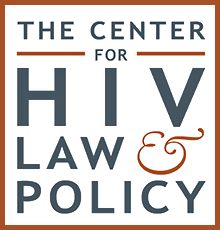Overview
There are no HIV-specific criminal laws in Oregon. There is, however, a general communicable disease provision, but we are not aware of any cases under this law. General criminal laws have been used to prosecute perceived HIV ‘exposure’ in a handful of cases.
The Public Health and Safety Title of the Oregon Code contains a provision which makes it an offence to ‘wilfully cause the spread of any communicable disease’, defined elsewhere to include any disease which can be transmitted by any means and may result in illness, death, or severe disability. This is a broad definition which would encompass HIV. The wording of the provision suggests that transmission and intent would be required, but there are no known cases to confirm this interpretation. This offence is a class C felony, carrying a penalty of up to five years’ imprisonment and a fine.
Conversely, general criminal laws have been used to prosecute perceived ‘exposure’. An exceptional 1996 case appears to be the first instance of this. In the case, a man living with HIV was convicted of 10 counts each of attempted murder and attempted assault after having sex with multiple people without disclosing his status. The numerous complainants and extreme circumstances of the case resulted in a severe sentence of 70 years’ imprisonment; he had allegedly refused to wear condoms, denied having HIV, and had been warned against having unprotected sex by his parole officer. It was also alleged that he told a partner that if he ever tested positive for HIV, he would intentionally transmit it to others, though he denied this claim.
Although this is an extreme example of HIV criminalisation, other prosecutions using general criminal laws have taken place in Oregon. In 2009, a man living with HIV pleaded guilty to assault and attempted assault after having unprotected sex without disclosing his status. In a 2012 case, a man was charged with attempted assault and reckless endangerment for unprotected sex without disclosure. HIV status has also been used as an aggravating factor in sentencing for sexual offences.
The most recent case was reported in December 2024, when a woman was accused of HIV ‘exposure’ to another after her ‘involvement in a physical relationship’. It is not clear under which law she was charged.
Under the Public Health and Safety Title, authorities in Oregon have broad powers to compel people suspected of living with communicable diseases to submit to testing and examination upon issuance of a written order. Further powers permit authorities to order those suspected of living with communicable diseases, including those who refuse to comply with testing and examination, to be quarantined and isolated temporarily, providing a list of guidelines are complied with. This can be extended up to a period of 60 days on receipt of a court order. Failure to abide by these orders can result in contempt of court charges being brought. Medical records which are ordinarily confidential can be released to law enforcement to aid in carrying out these powers.
For a detailed analysis of HIV criminalisation in Oregon, as well as all other US states, see the Center for HIV Law and Policy report, HIV Criminalisation in the United States: a Sourcebook on State and Federal HIV Criminal Law and Practice.
Laws
Oregon Statutes § 433.010
Spreading disease prohibited; health certificates to be issued by health professionals; rules
(1) No person shall willfully cause the spread of any communicable disease within this state.
Oregon Statutes
§ 161.405 Attempts
(1) A person is guilty of an attempt to commit a crime when the person intentionally engages in conduct which constitutes a substantial step toward commission of the crime.
(2) An attempt is a:
(…)
(c) Class C felony if the offense attempted is a Class B felony.
(…)
§ 163.175 Assault in the second degree
(1) A person commits the crime of assault in the second degree if the person:
(a) Intentionally or knowingly causes serious physical injury to another;
(b) Intentionally or knowingly causes physical injury to another by means of a deadly or dangerous weapon; or
(c) Recklessly causes serious physical injury to another by means of a deadly or dangerous weapon under circumstances manifesting extreme indifference to the value of human life.
(2) Assault in the second degree is a Class B felony.
§ 163.175 Recklessly endangering another person
(1) A person commits the crime of recklessly endangering another person if the person recklessly engages in conduct which creates a substantial risk of serious physical injury to another person.
(2) Recklessly endangering another person is a Class A misdemeanor.
Further resources
Not all laws used to prosecute people living with HIV in this state are included on this page. For a comprehensive overview and analysis of HIV-related criminal and similar laws and policies, visit The Center for HIV Law and Policy



